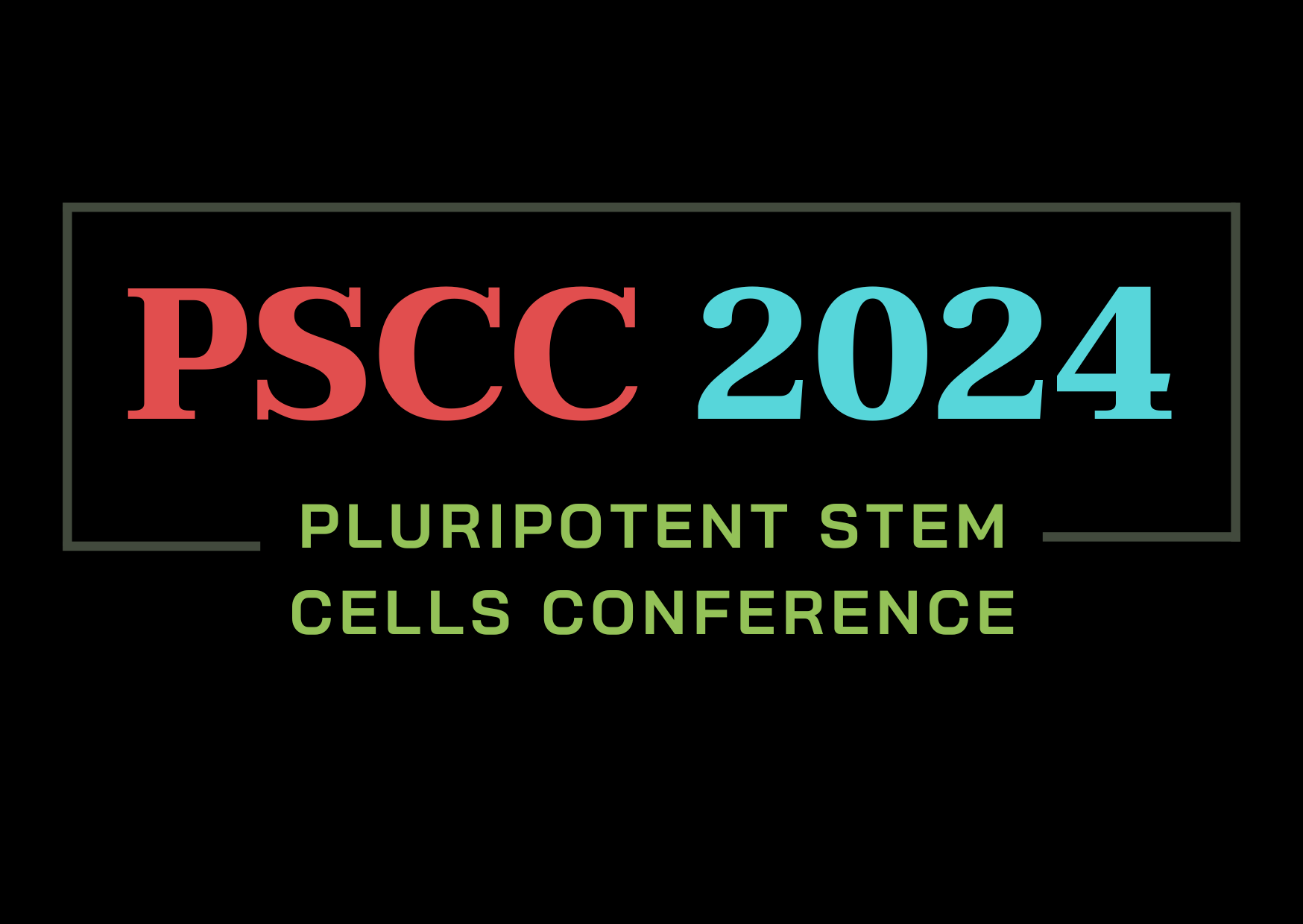Plenary Speaker

Masayo Takahashi, M.D., Ph.D.
Vision care Inc. Kobe, Japan
Dr. Takahashi is a Japanese ophthalmologist and stem cell researcher. She served as an assistant professor in the Kyoto University Hospital after Ph.D. graduation. She discovered the potential of stem cells as a tool for retina therapy when she moved to the Salk Institute, U.S. She joined RIKEN in 2006, her team launched a pilot clinical study using iPS cells first in human in 2013. She started a new carrier, a president of startup company; Vision Care Inc., to proceed implement clinical therapy.
Sustainable Retinal Cell Therapy
Invited Speaker
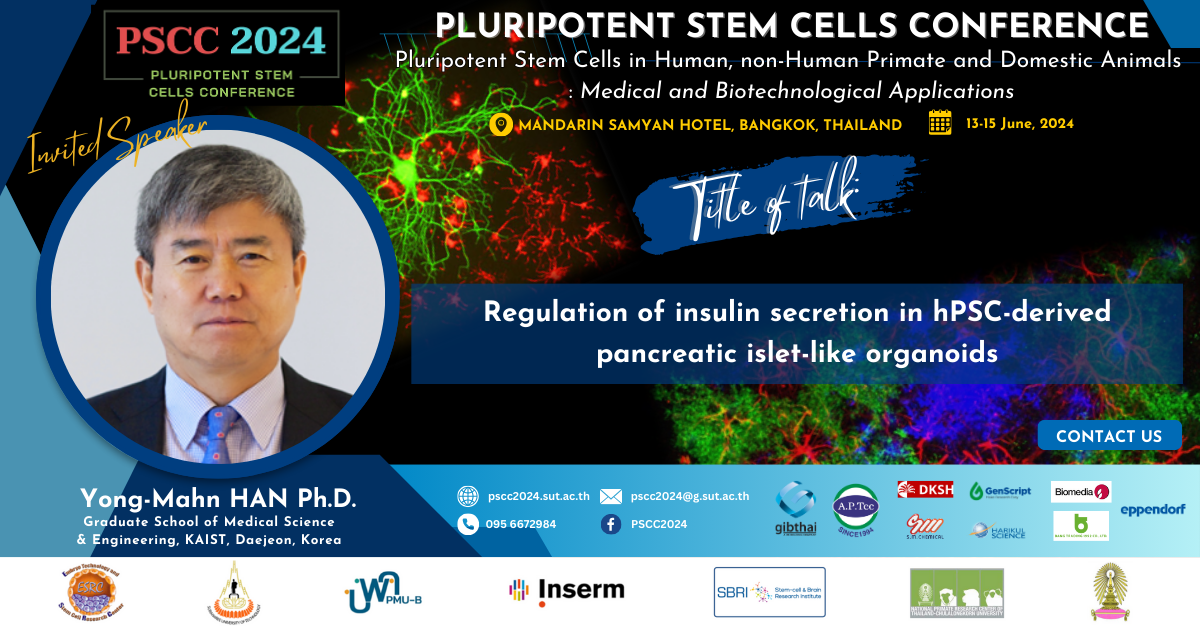
Yong-Mahn HAN, Ph.D.
Graduate School of Medical Science and Engineering, KAIST, Daejeon, Korea
Dr. Han is Emeritus Professor at Graduate School of Medical Science and Engineering, KAIST, Daejeon , Korea. He is interested in cellular reprogramming, differentiation of human pluripotent stem cells (hPSCs), disease modeling using iPSCs and also focus on regulation of insulin secretion in hPSC-derived pancreatic islet-like organoids.
Regulation of Insulin Secretion in hPSC-derived Pancreatic Islet-like Organoids
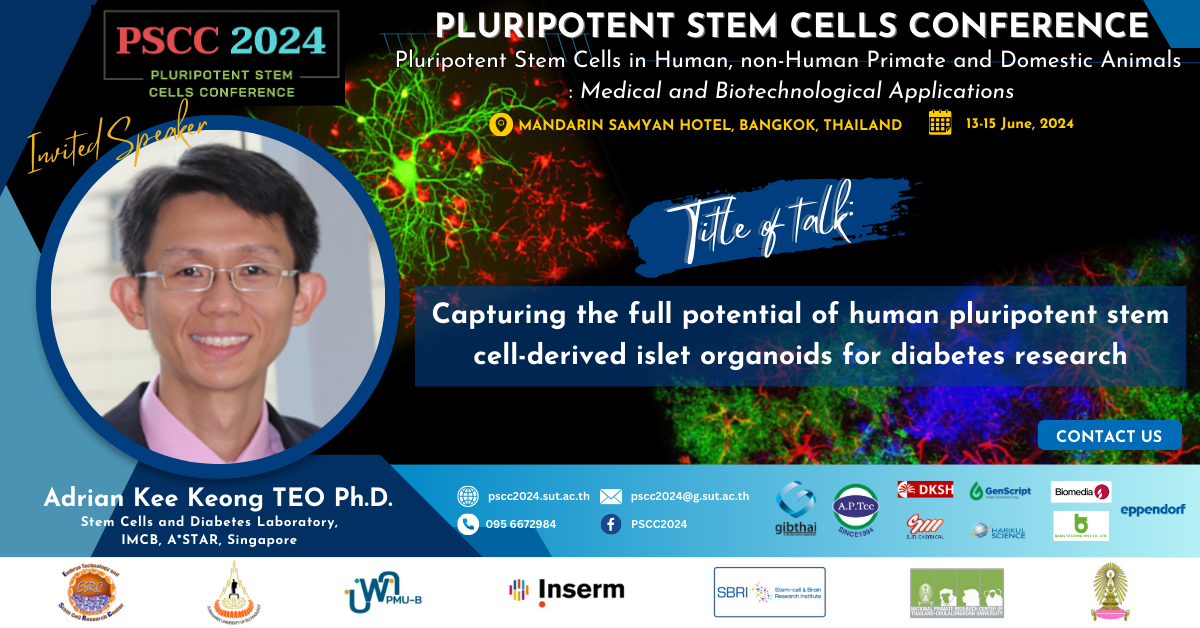
Adrian Kee Keong, Ph.D.
Stem Cell and Diabetes Laboratory, IMCB, A*STAR, Singapore
Dr. Teo is a principal investigator at the Institute of Molecular and Cell Biology (IMCB) and an assistant professor at Yong Loo Lin School of Medicine, National University of Singapore, using human pluripotent stem cells for disease modelling of diabetes, developing therapeutics and cell therapy. He is also a co-founder of BetaLife Pte Ltd focused on
the use of stem cell therapy for diabetes patients.
the use of stem cell therapy for diabetes patients.
Capturing the Full Potential of Human Pluripotent Stem Cell-Derived Islet Organoids for Diabetes Research
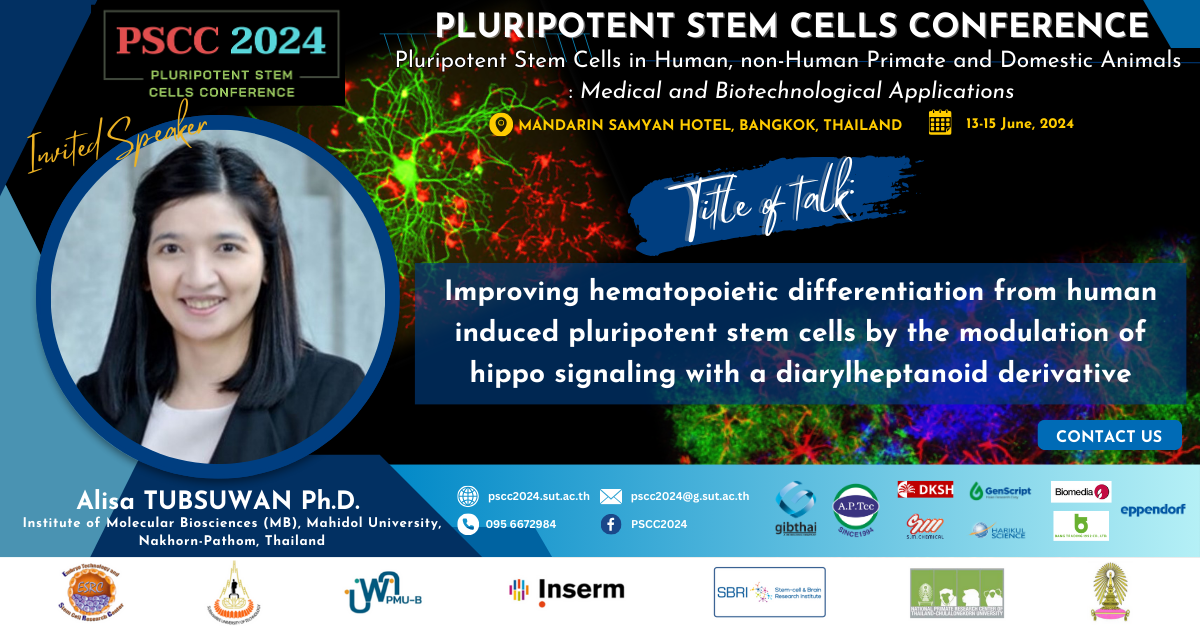
Alisa Tubsuwan, Ph.D.
Institute of Molecular Biosciences (MB), Mahidol University, Nakhon-Pathom, Thailand
Dr. Alisa is currently an Assistant Professor at the Institute of Molecular Biosciences (MB), Mahidol University, NakhornPathom, Thailand. She worked at the Laboratoire de Thérapie Génique et Cellulaire, Service des Thérapies Innovantes, UMR_E007, Institut François Jacob, CEA de Fontenay-auxRoses, France, and Bioneer in Hørsholm, Denmark, before
becoming a faculty member at the MB.
becoming a faculty member at the MB.
Improving Hematopoietic Differentiation from Human Induced Pluripotent Stem Cells by the Modulation of Hippo Signaling with a Diarylheptanoid Derivative
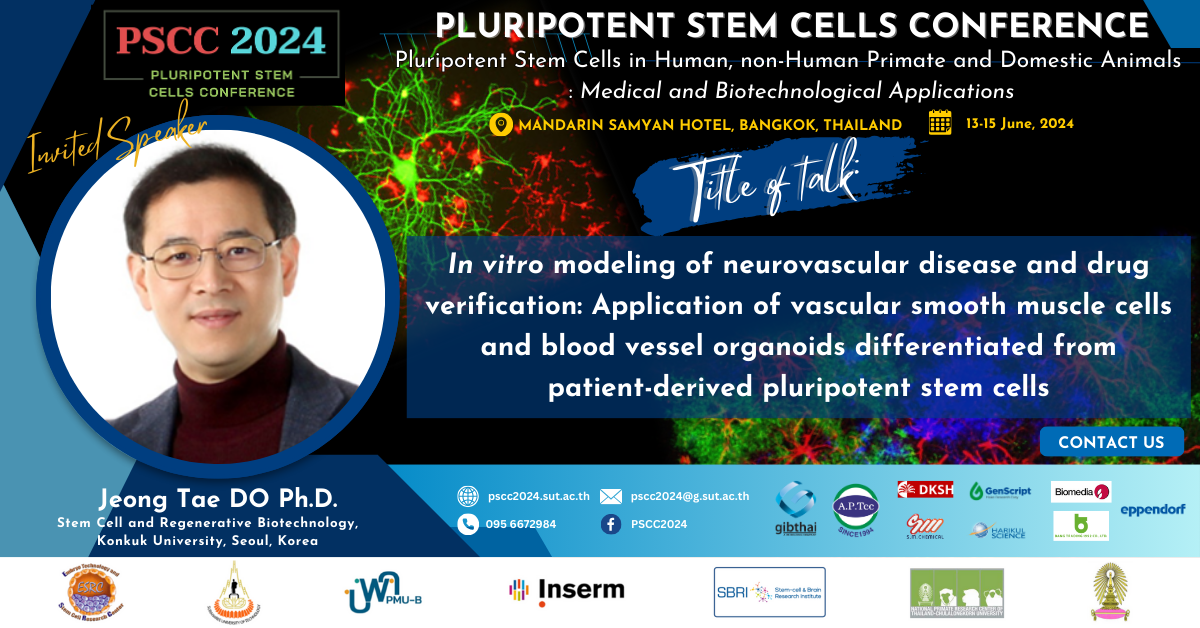
Jeong Tae Do, Ph.D.
Stem Cell and Regenerative Biotechnology, Konkuk University, Seoul, Korea
Dr. Do is a Professor in Department of Stem Cell and Regenerative Biotechnology, Konkuk University, Seoul, South Korea. He serves as an Editorial board member for Scientific Reports (Nature Publishing Group) and International Journal of Stem Cells. His findings emphasize the importance of integration-free iPSCs for clinical applications. Recently, he also focuses on the formation of brain organoids and vascular organoids from human iPSCs, which will be used for disease modeling of neurological and neurovascular disorder.
In vitro Modeling of Neurovascular Disease and Drug Verification: Application of Vascular Smooth Muscle Cells and Blood Vessel Organoids Differentiated from Patient-Derived Pluripotent Stem Cells
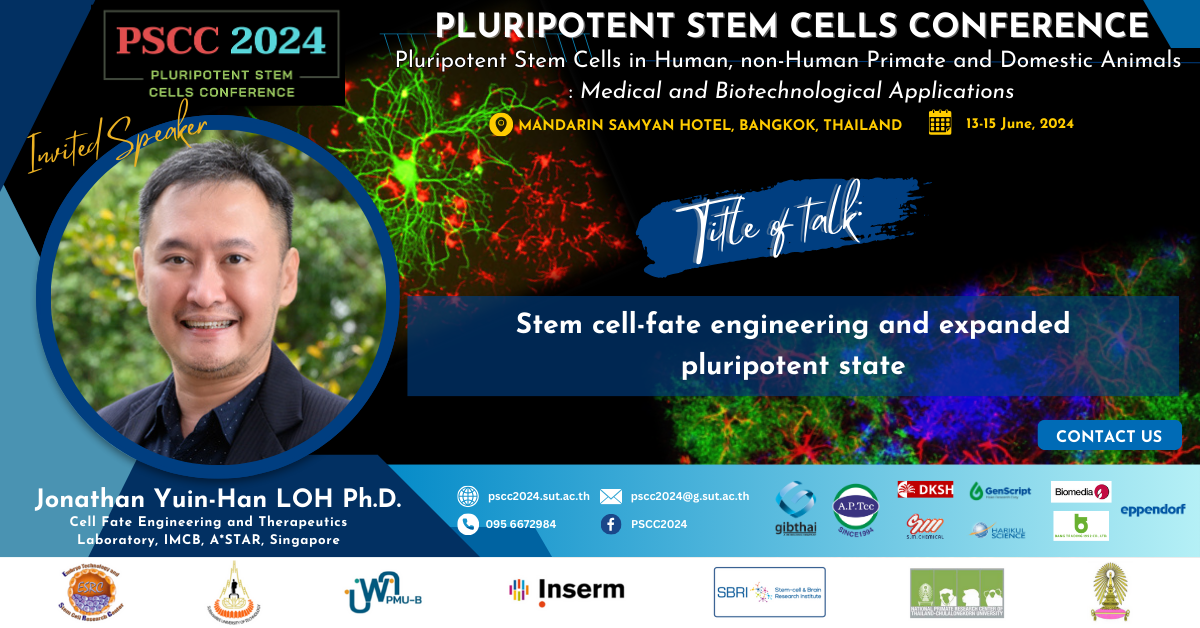
Jonathan Yuin-Han LOH, Ph.D.
Cell Fate Engineering and Therapeutics Laboratory, IMCB, A*STAR, Singapore
Dr. LOH is a principal investigator at the Institute of Molecular and Cell Biology (IMCB), and also holds the responsibility of being the director of cell fate engineering and therapeutics unit of IMCB. He pioneered the use of human blood cells for reprogramming of induced pluripotent stem cells (iPSCs) and the modeling of congenital and somatic hematologic diseases using iPSCs. He is interested in dissecting the mechanisms regulating cell fate changes and developing novel tools for deriving reprogrammed and differentiated cell types.
Stem Cell-Fate Engineering and Expanded Pluripotent State
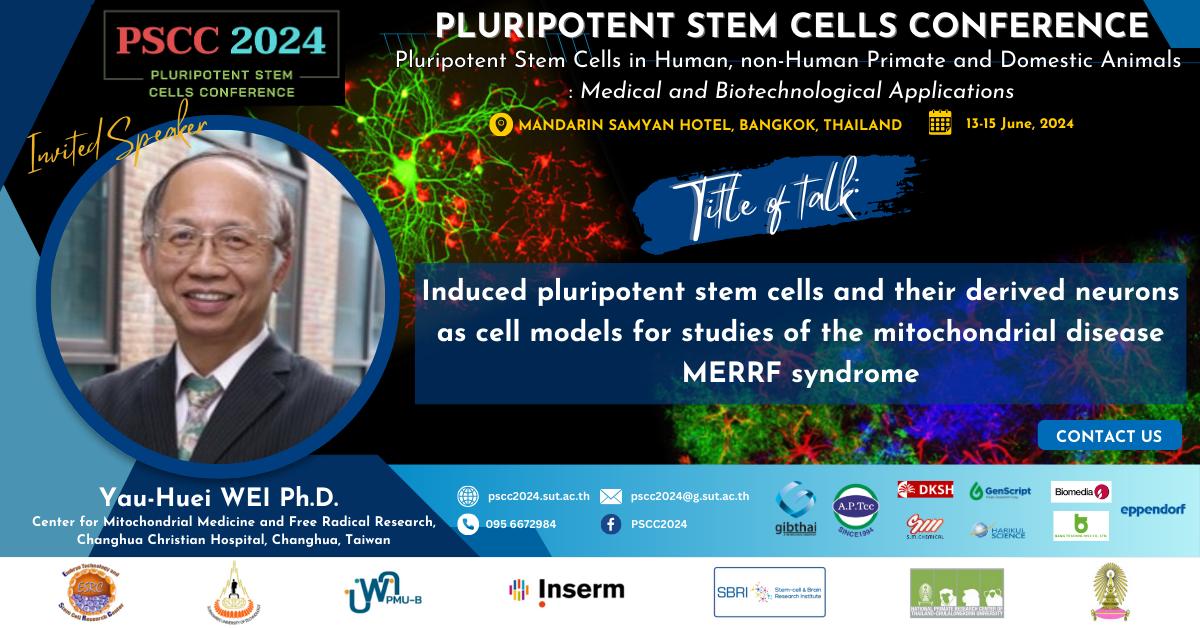
Yau-Huei Wei, Ph.D.
Center for Mitochondrial Medicine and Free Radical Research, Changhua Christian Hospital, Changhua, Taiwan
Dr. Wei is Professor and Director at Center for Mitochondrial Research and Medicine, Changhua Christian Hospital, Changhua City, Taiwan. He is interested in induced pluripotent stem cells and their derived neurons as cell models for studies of the mitochondrial disease MERRF syndrome.
Induced Pluripotent Stem Cells and their Derived Neurons as Cell Models for Studies of the Mitochondrial Disease MERRF Syndrome
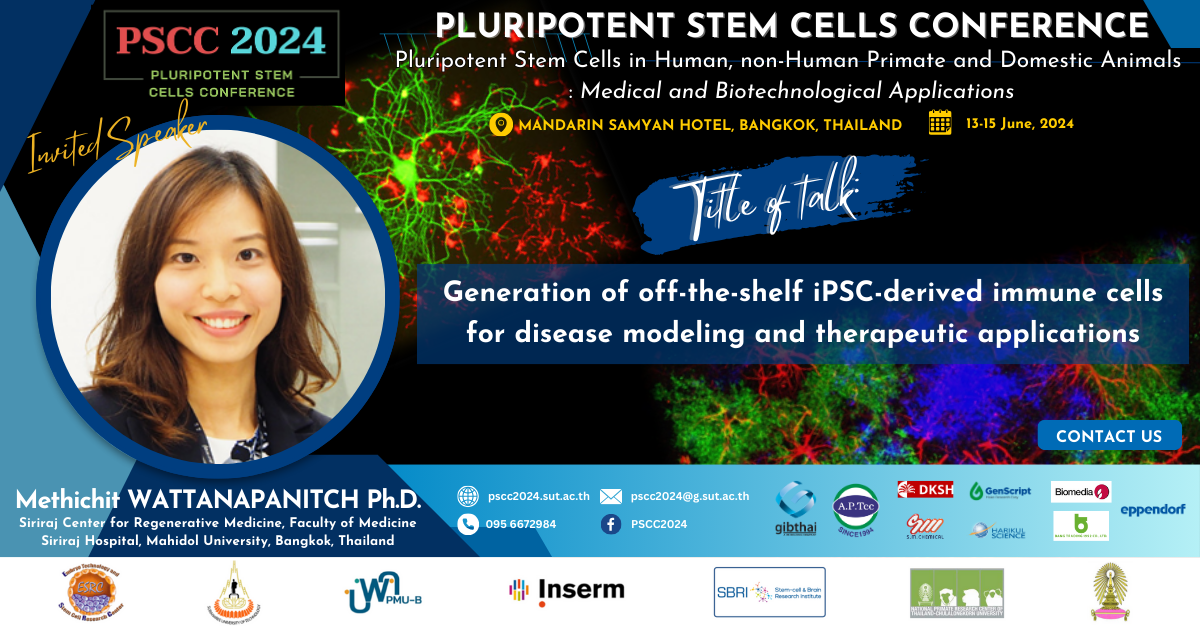
Methichit Wattanapanitch, Ph.D.
Siriraj Center for Regenerative Medicine, Faculty of Medicine Siriraj Hospital, Mahidol University, Bangkok, Thailand
Dr. Methichit is an Associate Professor at Siriraj Center for Regenerative Medicine (SiCRM), Faculty of Medicine Siriraj Hospital, Mahidol University,Thailand. She is interested in developing cell-based therapy for regenerative medicine and studying disease pathogenesis using patient-specific stem cells. She is also use genome engineering strategy to correct genetic mutations or enhance the functions of the cells to develop new therapeutic approaches to treat degenerative diseases, genetic diseases, infectious diseases as well as cancers.
Generation of off-the-shelf iPSC-derived immune cells for disease modeling and therapeutic applications
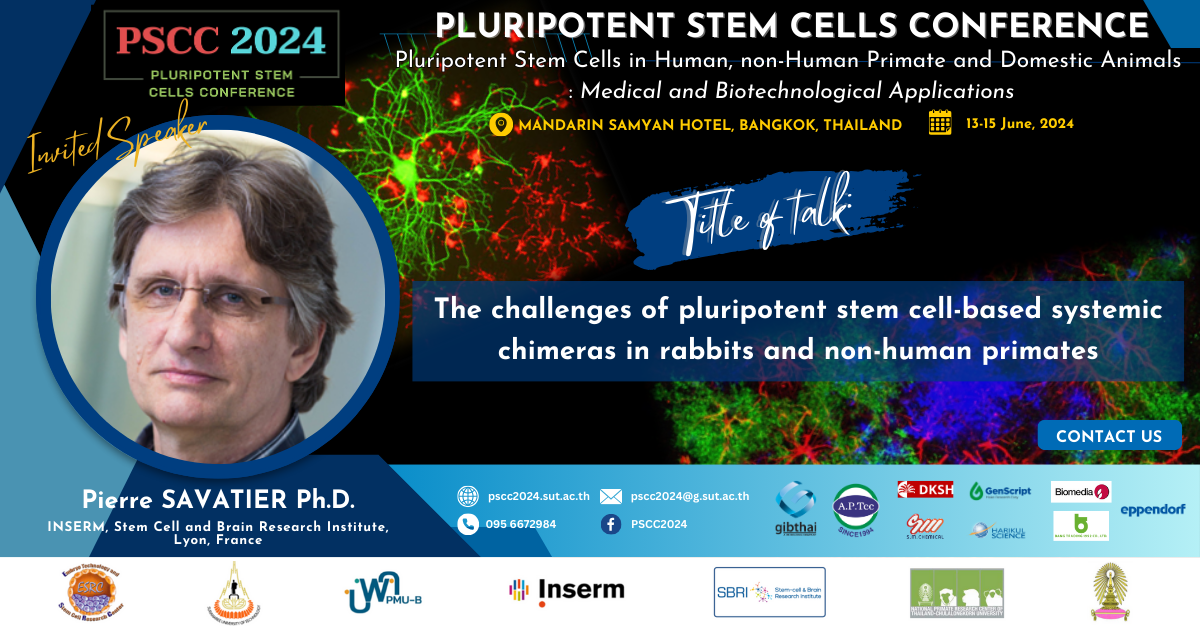
Pierre Savatier, Ph.D.
INSERM, Stem Cell and Brain Research Institute, Lyon, France
Dr. Pierre Savatier is senior researcher at the National Institute for Health and Medical Research INSERM) and Principal Investigator at the Stem Cell and Brain Research Institute, Lyon, France. He is currently serving as Vice-President for the French Society for Stem Cell Research (FSSCR).
The Challenge of Pluripotent Stem Cell-Based Systemic Chimeras in Rabbits and Non-Human Primates
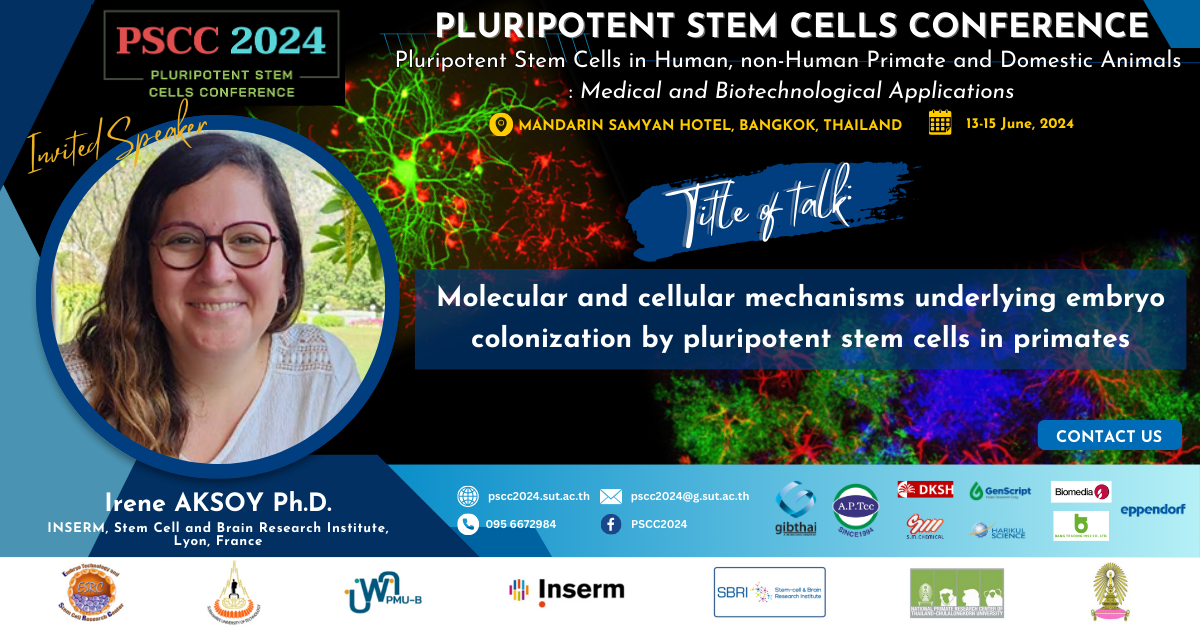
Irene Aksoy, Ph.D.
INSERM, Stem Cell and Brain Research Institute, Lyon, France
Dr. Aksoy is a scientist at the National Institute for Health and Medical Research (INSERM) and Principal Investigator at the Stem Cell and Brain Research Institute, Lyon, France. She worked at the Genome Institute of Singapore in Singapore, before joining the INSERM. She is interested in molecular and cellular mechanisms underlying embryo colonization by pluripotent stem cells in primates
Molecular and Cellular Mechanisms Underlying Embryo Colonization by Pluripotent Stem Cells in Primates
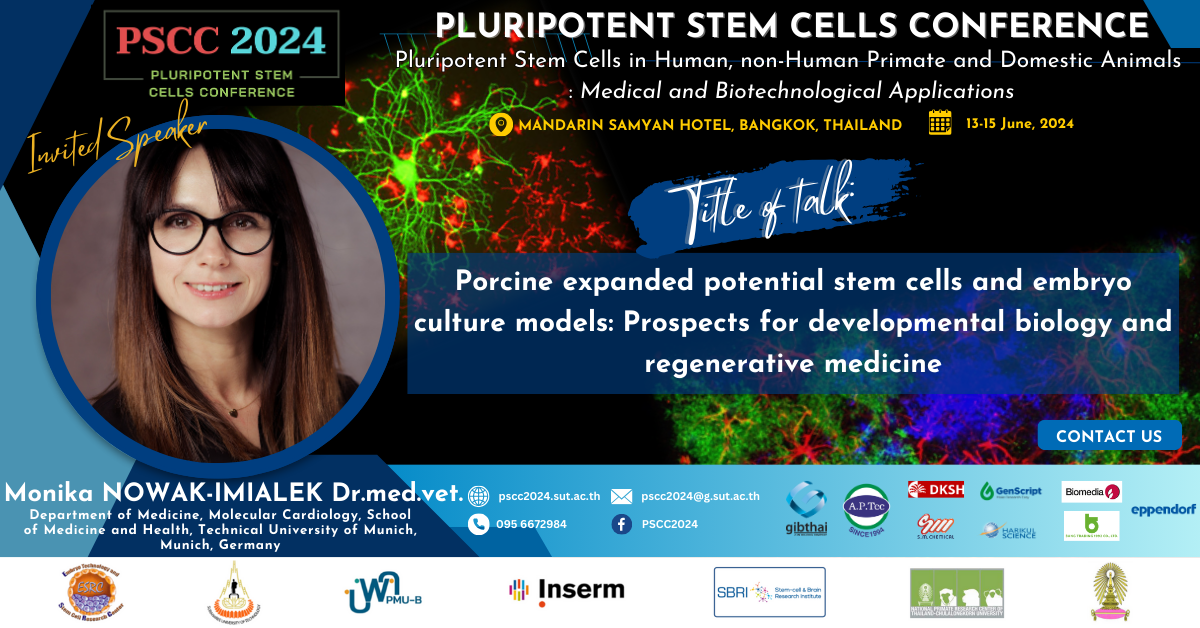
Monika NOWAK-IMIALEK, Dr.med.vet.
Department of Medicine, Molecular Cardiology, School of Medicine and Health, Technical University of Munich, Munich, Germany
Dr. Nowak-Imialek is a senior scientist at the First Department of Medicine at Klinikum rechts der Isar, Technical University Munich in Germany. She worked before for many years at the Institute of Farm Animal Genetics of the Friedrich-Loeffler-Institut located in Mariensee near to Hannover (Germany) on the derivation of embryonic stem cells and the generation of transgenic pig models. She established the first embryonic stem cell lines named "Expanded Potential Stem Cells (EPSCs)" from porcine embryos. Her research interests focus on porcine embryology and EPSCs-derived cells for testing cell therapy in the pig. Recently, she also focused on the generation of inter-species chimera using porcine embryos.
Porcine Expanded Potential Stem Cells and Embryo Culture Models: Prospects for Developmental Biology and Regenerative Medicine
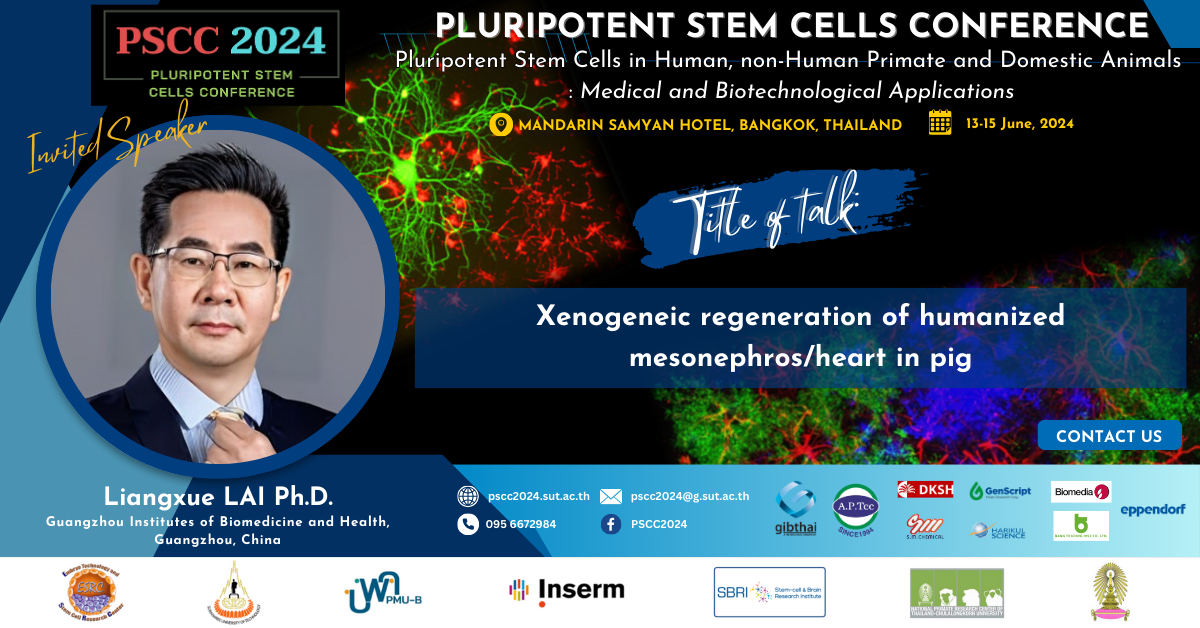
Liangxue Lai, Ph.D.
Guangzhou Institutes of Biomedicine and Health, Guangzhou, China
Dr. Liangxue Lai is Principal Investigator and Deputy Director of Southern China Institute of Stem Cell Biology and Regenerative Medicine, Guangzhou institutes of Biomedicine and Health, China. Dr. Lai’s lab is focusing on transgenic animals, animal cloning human and animal stem cells. His team made the first knock-out pigs in the world by using nuclear transfer approach.
Xenogeneic Regeneration of Humanized Mesonephros/heart in Pig
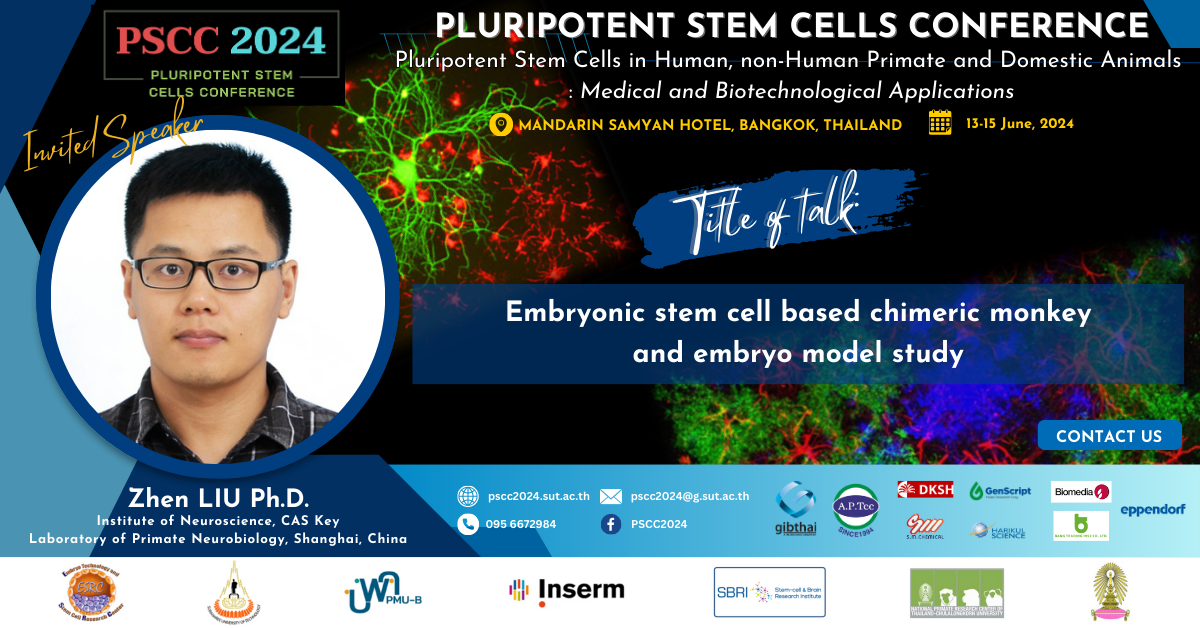
Zhen Liu, Ph.D.
Institute of Neuroscience, CAS Key Laboratory of Primate Neurobiology, Shanghai, China
Dr. Liu is the Principal Investigator at the Institute of Neuroscience, CAS, Shanghai, China. He is focused on important questions of reproduction, stem cells, and embryology in primate species, including somatic cell nuclear transfer and cell reprogramming, embryonic stem cell pluripotency, germ cell differentiation, spermatogonial stem cells, and reproductive endocrinology. Dr. Liu's studies will provide new potential transgenic technologies for non-human primates and new solutions for human reproductive barriers.
Embryonic Stem Cell Based Chimeric Monkey and Embryo Model Study
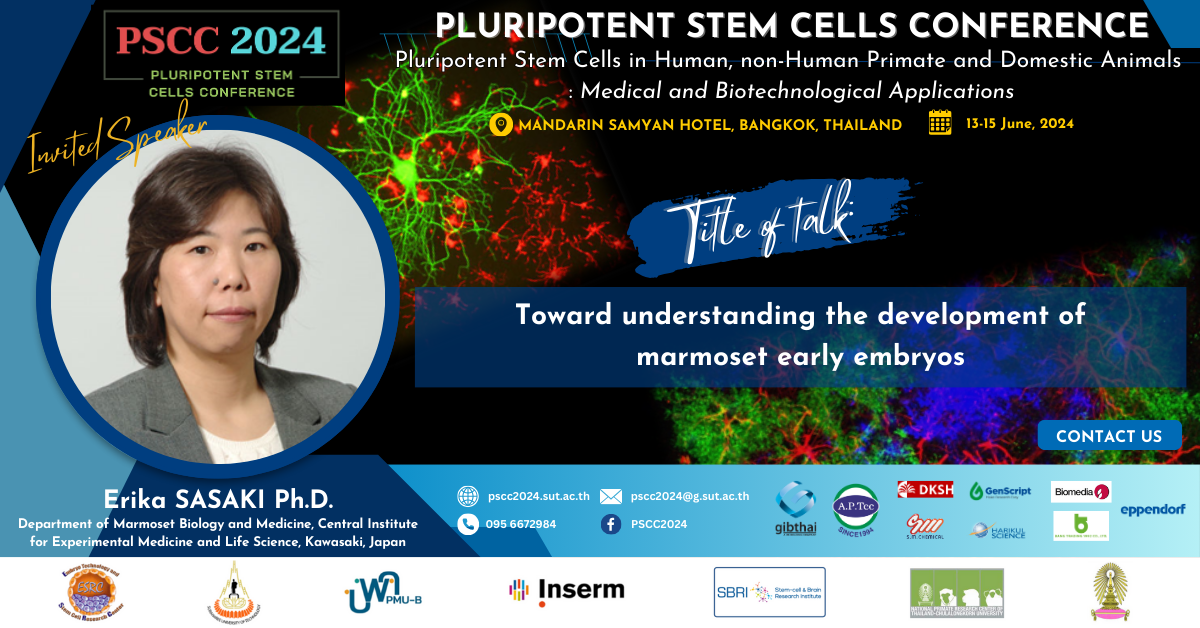
Erika Sasaki, Ph.D.
Department of Marmoset Biology and Medicine, Central Institute for Experimental Animals, Japan
Dr. Sasaki is a Director of the Department of Marmoset Biology and Medicine, Central Institute for Experimental Animals (CIEA), a Senior Visiting Scientist at RIKEN Brain Science Institute (Center for Brain Science), and a Project Professor at Advanced Research Center, Keio University ofJapan, and Contract Consultant at the Reproductive Biology and Genetics core, at National Institute of Neurological Disorders and Stroke.
Toward understanding the development of marmoset early embryos
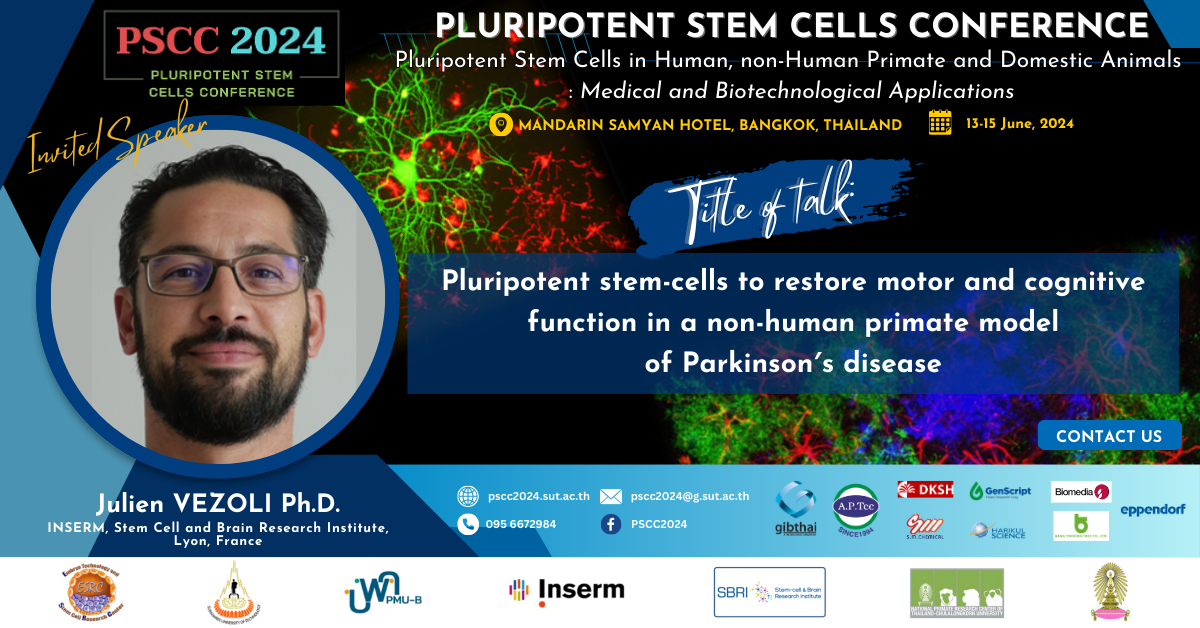
Julien Vezoli, Ph.D.
INSERM, Stem Cell and Brain Research Institute, Lyon, France
Dr. Vezoli is a researcher at the National Institute for Health and Medical Research (INSERM) in the Stem Cell and Brain Research Institute, Lyon, France. He is currently consulting member of the Connectomics platform (SBRI, Lyon).
Pluripotent stem-cells to restore motor and cognitive function in a non-human primate model of Parkinson's disease
Short Communication
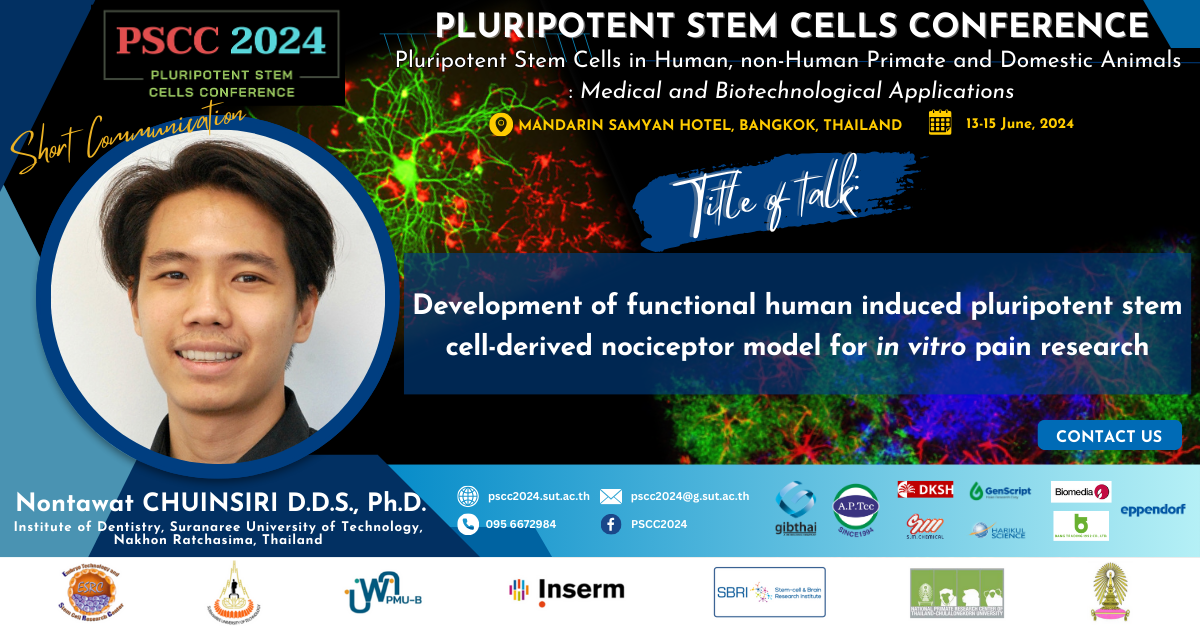
Nontawat CHUINSIRI, D.D.S., Ph.D.
Institute of Dentistry, Suranaree University of Technology, Nakhon Ratchasima, Thailand
Dr. Chuinsiri is currently a lecturer and lead investigator in orofacial pain at the Institute of Dentistry, Suranaree University of Technology (SUT). He is also responsible for delivering care to patients with orofacial pain problems at the Oral Health Centre, Suranaree University of Technology Hospital.
Development of Functional Human Induced Pluripotent Stem Cell-Derived Nociceptor Model for In Vitro pain research
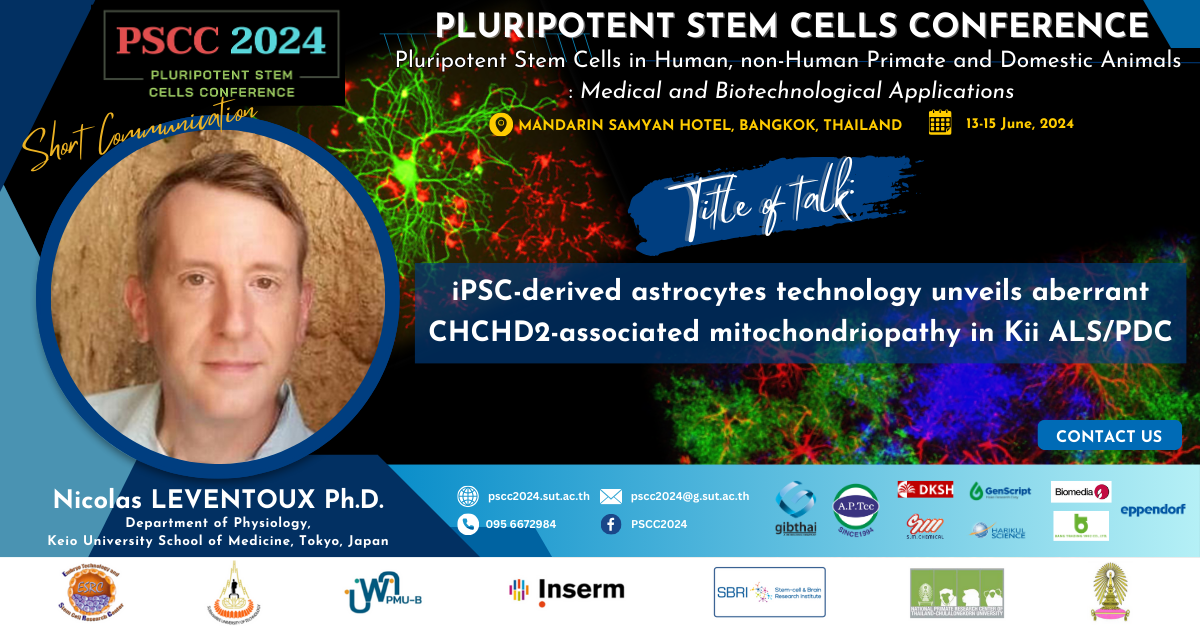
Nicolas LEVENTOUX, Ph.D.
Department of Physiology, Keio University School of Medicine, Tokyo, Japan
Dr. Nicolas Leventoux is a researcher scientist at Dementia Pathophysiology Collaboration Unit (RIKEN Center for Brian Science). He is interested in the development and treatments for incurable neurological diseases including Amyotrophic Lateral Sclerosis (ALS) and Parkinson's disease (PD) based on iPS cell drug discovery.
iPSC-Derived Astrocytes Technology Unveils Aberrant CHCHD2-Associated Mitochondriopathy in Kii ALS/PDC
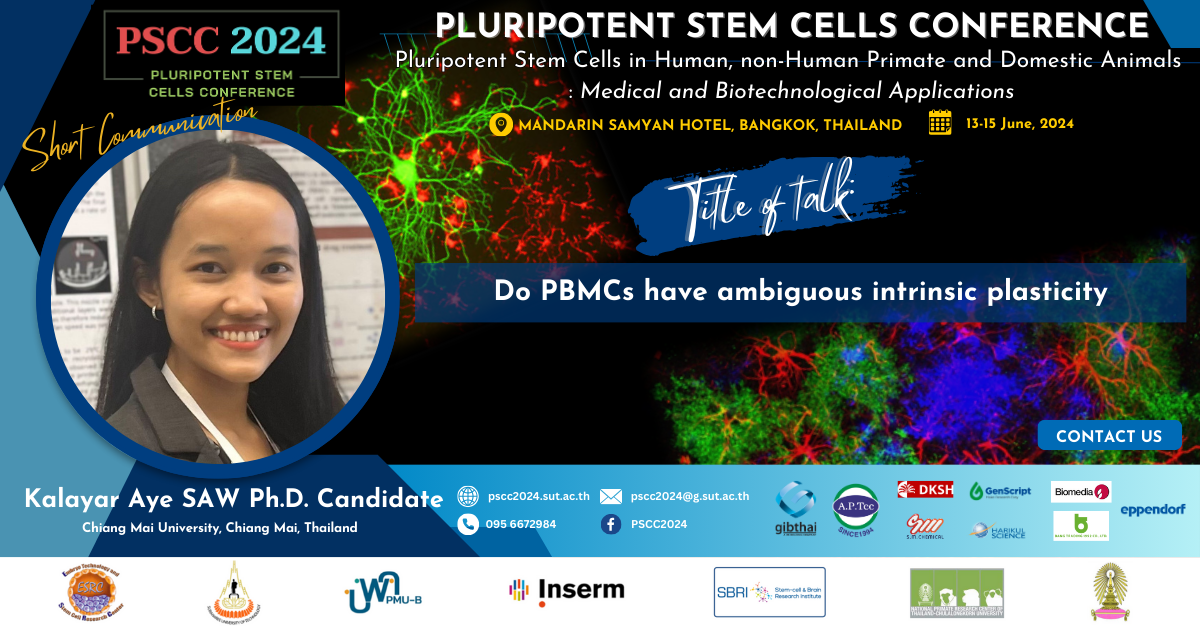
Kalayar Aye SAW, Ph.D. Candidate
Chiang Mai University, Chiang Mai, Thailand
Dr. Kalayar Aye SAW (M.B,B.S) is in her final year of Ph.D. in Biomedical Sciences Program fully granted by Chiang Mai University Presidential Scholarship. She is working under the supervision of Prof. Chalermchai Pilapong and her main interest is in regenerative medicine focusing on cell reprogramming. Before starting her Ph.D. she spent a year working as medical officer in Myanmar
Do PBMCs Have Ambiguous Intrinsic Plasticity?
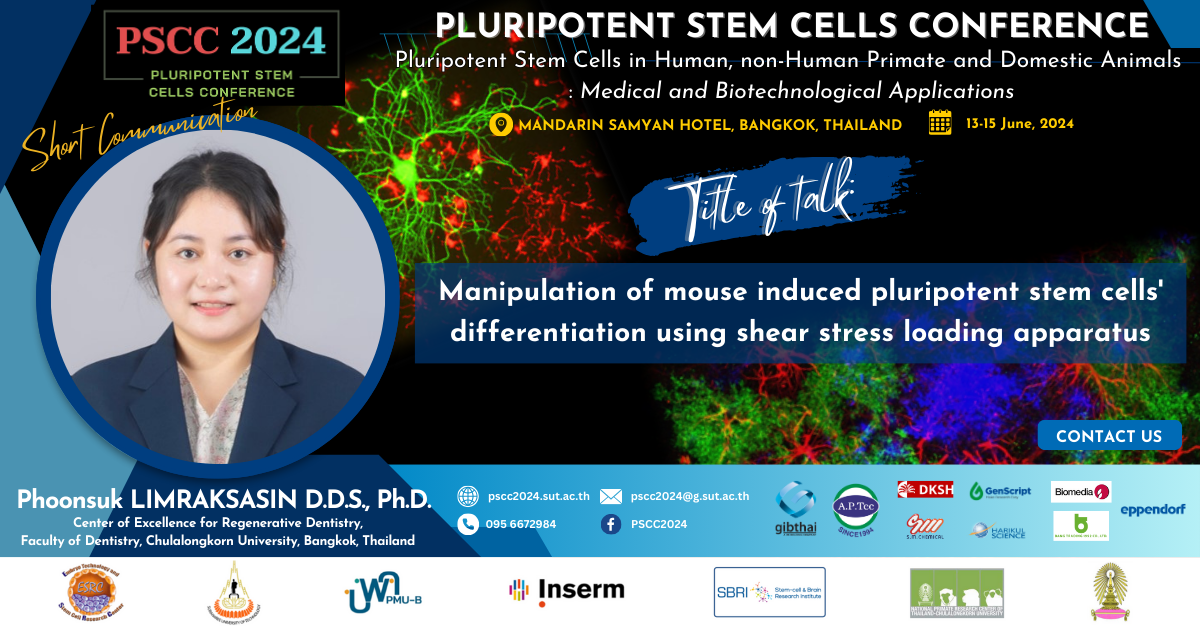
Phoonsuk LIMRAKSASIN, D.D.S., Ph.D.
Center of Excellence for Regenerative Dentistry, Faculty of Dentistry, Chulalongkorn University, Bangkok, Thailand
Dr. Phoonsuk is a junior lecturer at the Department of Anatomy, and she has the responsibility of being the Principal Investigator in the Center of Excellence for Regenerative Dentistry and the Principal Investigator in the Center of Dental Stem Cell Biology at the Faculty of Dentistry, Chulalongkorn University.
Manipulation of Mouse Induced Pluripotent Stem Cells' Differentiation Using Shear Stress Loading Apparatus
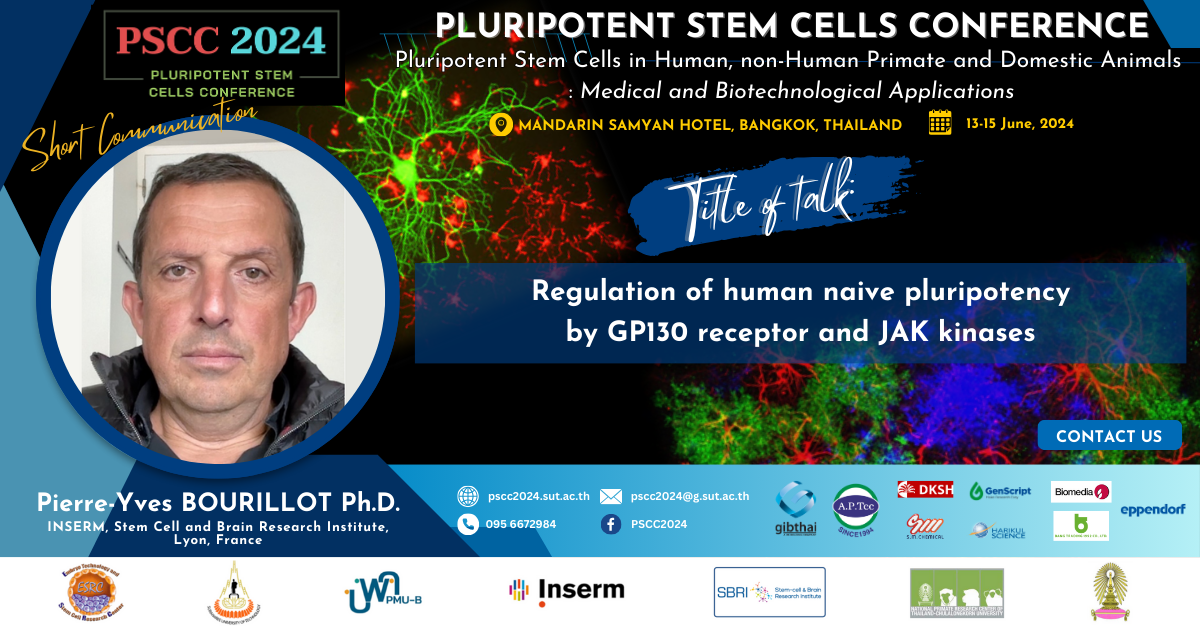
Pierre-Yves BOURILLOT, Ph.D.
INSERM, Stem Cell and Brain Research Institute, Lyon, France
Dr. Bourillot is senior researcher at the National Centre for Scientific Research (CNRS), Stem Cell and Brain Research Institute and Principal Investigator at the Stem Cell and Brain Research Institute, Lyon, France. He studies LIF/STAT3 signalling in mouse and human ES cells. In collaboration with Hongwei Chen, he reprogrammed human ES cells to ground-like state of pluripotency. He also studies the role of long non-coding RNAs in ground state pluripotency
Regulation of Human Naive Pluripotency by GP130 Receptor and JAK kinases
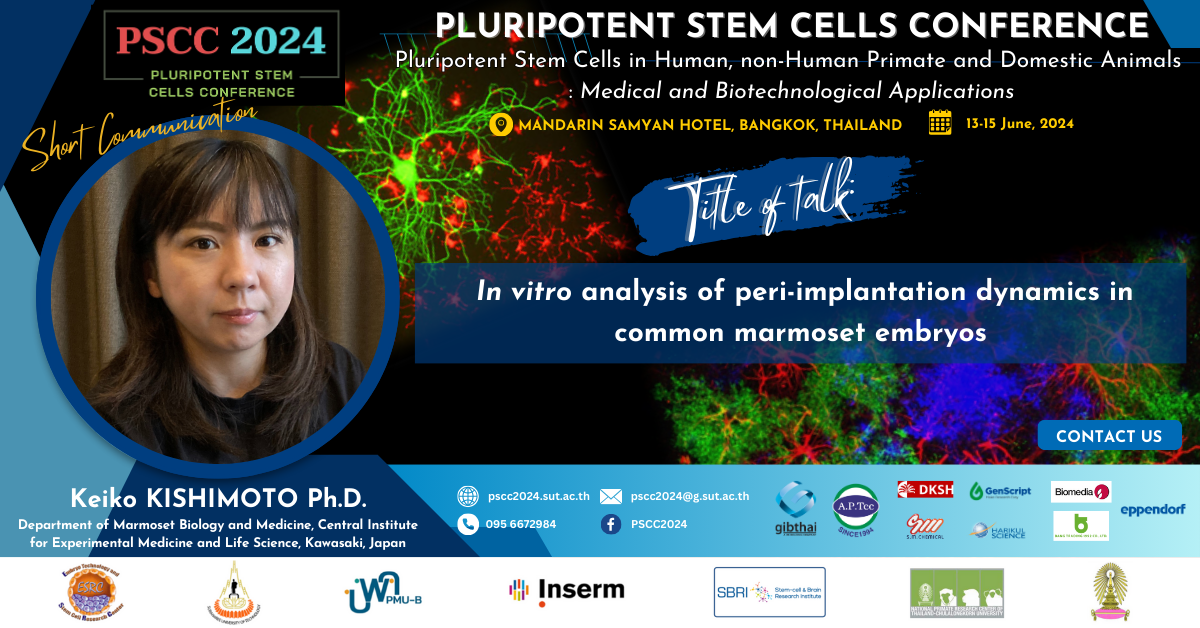
Keiko KISHIMOTO, Ph.D.
Department of Marmoset Biology and Medicine, Central Institute for Experimental Medicine and Life Science, Kawasaki, Japan
Dr. Kishimoto is a researcher in Erika Sasaki's lab at the Central Institute for Experimental Medicine and Life Science. She obtained her Ph.D. in Medicine from Hiroshima University and specializes in the study of implementation using common marmoset embryos.
In Vitro Analysis of Peri-Implementation Dynamics in Common Marmoset Embryos
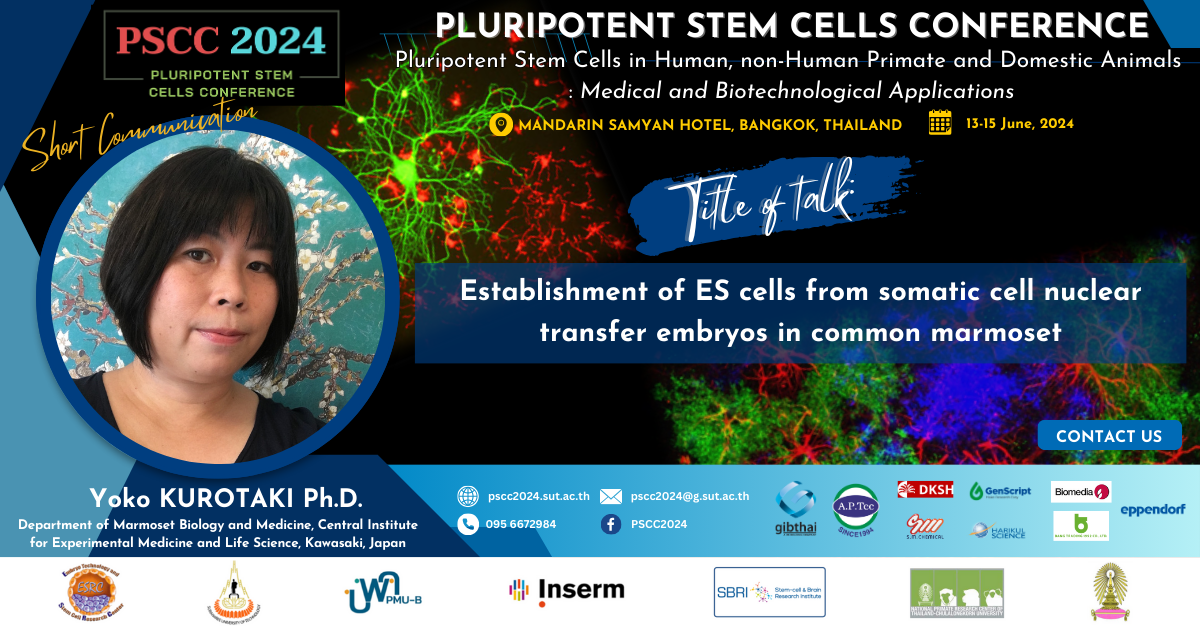
Yoko KUROTAKI, Ph.D.
Department of Marmoset Biology and Medicine, Central Institute for Experimental Medicine and Life Science, Kawasaki, Japan
Dr. Kurotaki is the Deputy Director of the Basic Technology Center for Marmoset Research at the Central Institute for Experimental Medicine and Life Science (CIEM) and a Visiting Researcher of the RIKEN Bioresource Engineering Division (BRC) in Japan.
Establish of ES Cells from Somatic Cell Nuclear Transfer Embryos in Common Marmoset
